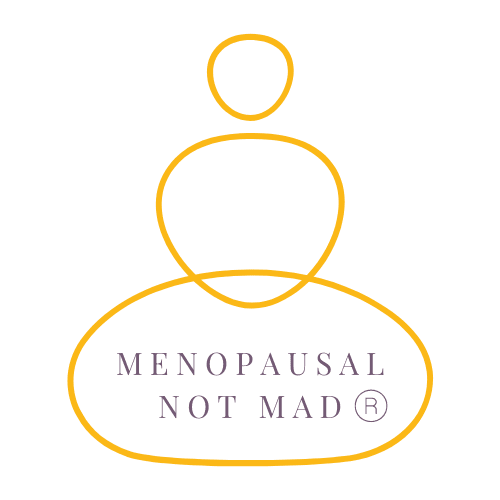HRT Safety & Efficacy updates:
20+ years on from the WHI study that scared women into stopping or never starting HRT
Published: 12/07/2022
As an associate of Newson Health Menopause Society (NHMS) I recently attended an excellent webinar on the HRT situation now that we are 20+ years on from that awful, flawed and hugely damaging study by the Women’s Health Initiative (WHI), which halted women’s hormone health overnight.
Dr Sarah Ball offered an informative update during the 90 minute session which I have tried to summarise for you below.
Unlike my usual blog posts, this is quite wordy but there’s a lot to cover so I hope you read to the end, and that you find it useful and reassuring.
The History of HRT:
1960’s: Estrogen only HRT was being successfully used to treat menopausal symptoms
1970’s: It was found that estrogen only HRT in women with their uterus still in place, hugely increased the risk of endometrial cancer, and many women very tragically died as a result. Progesterone was then introduced to stop this happening (combined HRT)
1980’s: The advantages of HRT were being seen and widely promoted.
1991: WHI was set up
2002: The WHI trial was leaked to the media
Combined HRT was almost immediately stopped from being prescribed or used by women, but for some reason estrogen only HRT (for those women who had no uterus), continued to be used for 2 more years.
2004: Estrogen only HRT was also stopped due to stroke fears.
The result was 20+ years of fear and massive confusion for women and doctors regarding HRT use.
Before the WHI Study….
Female Heart Health Study 1989-1993:
The first major cardiovascular (CV) health trial in women studied 875 women aged 45-64 in the first 10 years post menopause (periods had stopped).
The group was split into 4 groups plus a placebo group.
The main aim was to establish the effect of HRT on CV risks. (Risks of stroke or heart attacks)
At the time they were only using conjugated equine estrogen (made from horses urine – called Premarin) which is not the same as the newer body identical options we have today.
Even so the results evidenced that with:
Premarin only: there was a 23% reduced CV risk
Premarin plus natural progesterone: there was a 19% reduced risk
Premarin plus synthetic progesterone (cyclical or continuous): there was a 5% reduced risk.
Heart Health Fun Fact!
It had previously been evidenced that HRT reduced the risk of coronary heart disease (CHD) by 50% (CHD being the leading cause of death in women)
The WHI Study: 2002
The study of 160,000 women was primarily set up to assess CV risks with assessment of fractures as a secondary outcome and breast cancer merely a ‘safety outcome’
Women who had recently become menopausal were excluded as those findings were considered to already be clear (see the above study) so the participants included:
70% who were 60-80 years!
*The average age was 63.5 years and 12 years post-menopausal! (When breast cancer risks are naturally higher for women anyway)
How was the Information Managed?
The usual protocol for managing data was all but ignored
Lead investigators were not consulted
*On 5/7/2002 key specialists were attending a conference on HRT (including the renowned Professor John Studd) where it was proposed that HRT should be offered to women to take forever
On 8/7/2002 the flawed and mismanaged data was leaked to the press. This was 9 days before the clinical article was formally published but too late for any changes to be made.
Lead investigators tried to change the publication and press release, but it was too late.
I’m not really a stats person as I prefer to look at the overall summary of findings, but the overall stats indicated the following:
Although estrogen only HRT showed a very small increased risk of blood clot issues, the stats were considered to be of ‘rare risk’ (so low as to almost be insignificant)
Estrogen only HRT was evidenced as reducing breast cancer risk.
The study was prematurely stopped as there was some evidence of blood clot risk (not in the 50-59 age range!) so the beneficial signs of estrogen only HRT post hysterectomy, were all but ignored. (Later shown as significant in addition to a reduction in CHD in those starting HRT prior to aged 60 years)
Although the combined HRT of the time showed a small increased risk of blood clots, breast cancer and stroke with synthetic progesterone; the mortality (death) rate was very low which meant that there were no increased risks of death.
It was clear however that there were some clear benefits when looking at reduced risks of :
Colon cancer
Hip fractures
Total fractures (this being the biggest benefit)
Diabetes
What happened when the WHI study came out?
Women stopped taking HRT on a global scale
A Finnish study from 1994-2009 charted the effects of stopping HRT. It found that there was a marked (statistically significant) increase in strokes and blood clots in the first year after stopping HRT (probably due to the loss of support from estrogen which helps to widen the blood vessels – known as vasodilatory)
It is estimated that 50,000 women died prematurely following surgical menopause because they stopped or didn’t start HRT!
An increase in fracture risk was identified as starting 1 year after stopping HRT and becoming statistically significant within 5 years. I can use my own mother as an example of this happening as she had to have replacement hips within 2 years of having to stop her HRT (at aged 64), having been fit and healthy up to that point.
The study resulted in all HRT products being badged as having the same risk level including vaginal/topical estrogen (which showed zero risk in the WHI study)
Studies that were ongoing at the time, which were looking at the use of Estrogen after a breast cancer diagnosis, were stopped. This has put back the vital research over 20 years.
Anti-depressants were prescribed in amounts directly relating to the drop in HRT prescription, which in simple terms means that HRT was replaced by anti- depressants.
What are the Learns:
The WHI showed no effect of HRT on CHD risk (good or bad), BUT the results were flawed due to the age of the participants and cannot be applied to all women.
Further data clearly evidences a CHD benefit for younger women or women who are peri menopausal.
NOTE:
Estrogen receptors respond differently after a long period with no estrogen which is a fact that cannot be ignored.
Studies of note:
HERS study
Salpeter data – 2006
Cochrane review – 2015
Danish Osteoporosis study
Elite study – 2016
The WHI study did evidence that estrogen was beneficial but progesterone (whilst necessary), alters the benefits (albeit to low risk levels)
WHI also evidenced that HRT does reduce overall mortality in women (early death)
The WHI study only used conjugated equine estrogen (Premarin) with synthetic progesterones and today we have transdermal, body identical options that are not comparable to these.
Even so – the evidence showed that estrogen only HRT reduced breast cancer risks by 7 cases per 10,000 women per year.
Use of combined HRT was evidenced to increase risk of breast cancer by 8 cases per 10,000 per year (not body identical or transdermal)
NOTE:
When comparing women joining the study with NO PREVIOUS HRT USE (12,304 women) – the breast cancer risk was exactly the same as the placebo!
2017 Follow up study:
Estrogen only:
Showed a decrease in breast cancer risks
Showed a decrease in breast cancer deaths
Combined HRT:
Small (but significant) increase in breast cancer risk for those not on HRT before the study
No significant increase in breast cancer deaths
Micronised Progesterone:
Here are some facts to help you make your own decision:
Utrogestan has no increased risk of breast cancer within the first 5 years
Its risk was still low after 5 years (slightly higher with synthetic progestogens)
The risks of breast cancer with Dydrogesterone (used in Femeston) is still not significant
Summary:
There was a lot more in the update which I will post about separately but these are the key points for now. Ultimately, no HRT risk is the same, as women are all individuals and have individual risk factors but after 50 years of studying this there is still no conclusive evidence that HRT causes breast cancer.
Combined HRT appears to have no effect on breast cancer risk and any risk that is there is extremely small (1 extra women in 1000 women every year)
Estrogen only HRT seems to be protective.
The type of progesterone is important – micronised is better.
We know that lifestyle factors are key to risk such as exercise, alcohol intake and weight.
In summary, it is personal choice of course but there is little evidence to suggest that HRT is harmful and will offer some great health benefits to improve both quality and length of life.
I for one will never stop replacing my hormones and will be fighting for women to do the same for as long as I can.
Jane
Please note:
This article is my interpretation of the webinar and my understanding of the data given and explained. I am not a doctor so can only give my experiences and interpretation of the science and evidence I study.
For more info please visit my website: www.menopausalnotmad.co.uk
Jane Pangbourne is an HRT specialist educator with a passion for women’s health.
If you want to read part 2 of this update now, you can do that by clicking HERE

If you would like to join the email list for monthly updates; you can do that HERE
Jane Pangbourne dedicates her time to HRT research & education.
She is also Founder of Menopausal Not Mad and The HRT Truth Collective
When you need more individual help with your symptoms or your HRT choice you can book a 1:1 consultation from HERE




